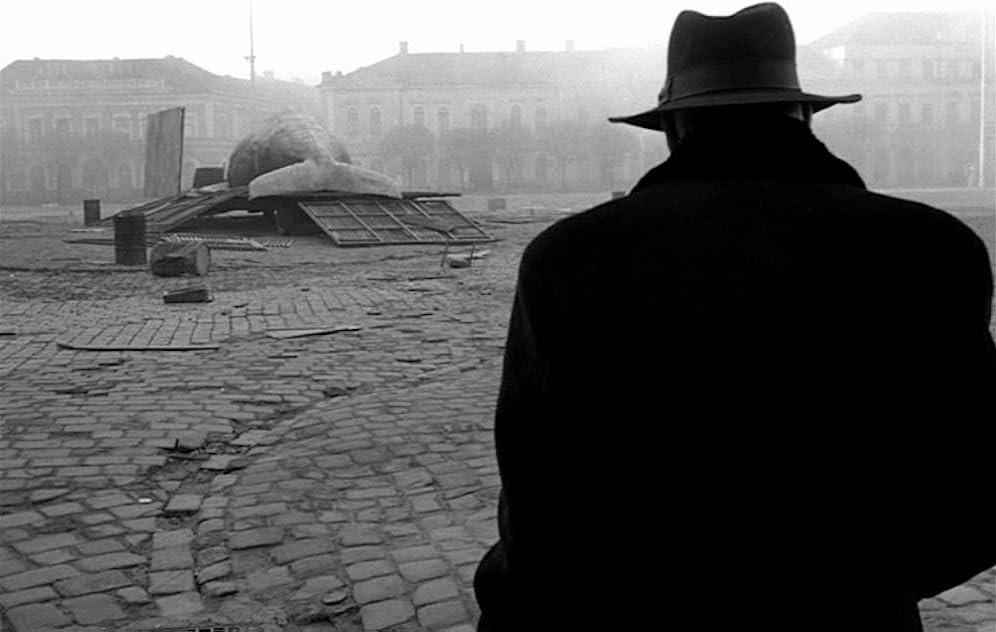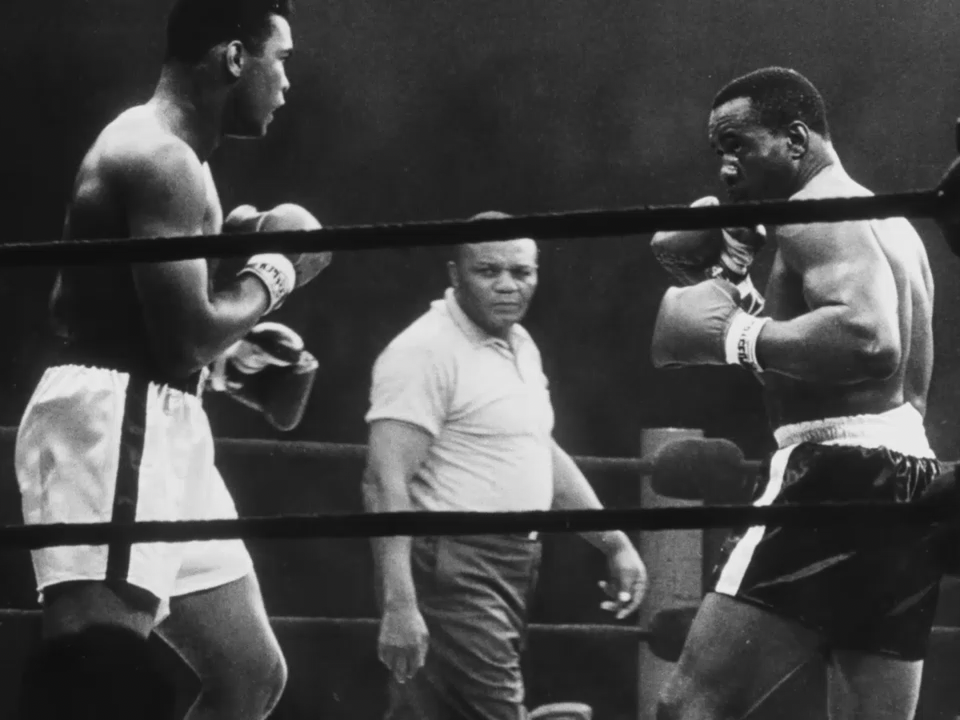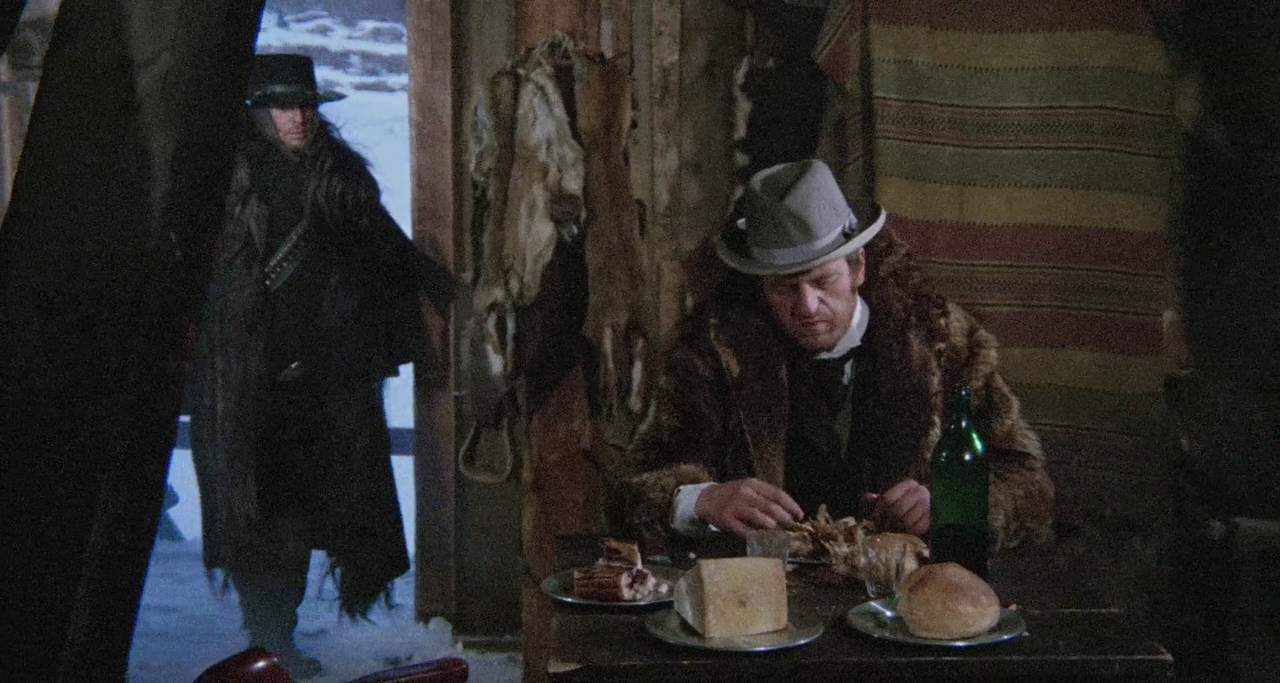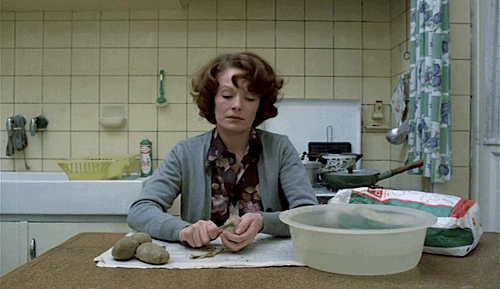Moi, un noir [I, a Negro] (Jean Rouch, 1958)
Oct
16
National Eddie Day

A young woman looks over her shoulder, smiling. DP: Jean Rouch.
Some of the leads play out their hopes and dreams and are named after famous actors from Western films. Petit Touré is #EddieConstantine.
france
“All I ask is that you step with me into the boundlessness, where constancy, quietude and peace, infinite emptiness reign.”Werckmeister harmóniák (Béla Tarr, 2000)
Sep
26
Shamu The Whale Day

A man in a dark hat and coat approaches the whale. The huge creature lays in an enormous open wooden crate in the middle of a town square. DPs: Patrick de Ranter, Miklós Gurbán, Erwin Lanzensberger, Gábor Medvigy, Emil Novák & Rob Tregenza.
– János Valuska
“This is the tale of the strange adventures of the young Allan Gray, who immersed himself in the study of devil worship and vampires. Preoccupied with superstitions of centuries past, he became a dreamer for whom the line between the real and the supernatural became blurred. His aimless wanderings led him late one evening to a secluded inn by the river in a village called Courtempierre.”Vampyr, ou l'étrange aventure de David Gray (Carl Theodor Dreyer, 1932)
Sep
25
World Dream Day

Allan Grey (Julian West) sees himself in a coffin in a dream. DPs: Rudolph Maté & Louis Née.
– title card
“It doesn't hurt to fall off the moon.”Céline et Julie vont en bateau: Phantom Ladies Over Paris [Celine and Julie Go Boating] (Jacques Rivette, 1974)
Sep
17
National Women's Friendship Day

Celine (Juliet Berto) leans into Julie (Dominique Labourier) in the back of a car. DP: Jacques Renard.
– Julie
“I done wrestled with an alligator, I done tussled with a whale; Handcuffed lightning, thrown thunder in jail; Only last week, I murdered a rock, injured a stone, hospitalized a brick; I’m so mean I make medicine sick.”Muhammad Ali, the Greatest [Float Like a Butterfly, Sting Like a Bee] (William Klein, 1974)
Sep
4
Mouthguard Day

A randomly picked screenshot showing Muhammad Ali fighting George Foreman. Each and every scene of a William Klein film is a photograph. DPs: Étienne Becker, William Klein, Richard Suzuki & Patrice Wyers.
– Muhammad Ali
– What do you want? – We just want that horse of yours. – You want my horse, there's an awful lot of ya. What are you gonna do with just one horse, anyhow? – Eat it. We're gonna feed off that beast for at least a week.Il grande silenzio [The Great Silence] (Sergio Corbucci, 1968)
Aug
26
horse

A man in a heavy fur coat (Bruno Corazzari) is eating at a small table when Silenzio (Jean-Louis Trintignant) enters the small establishment. Outside the landscape is covered in snow. DP: Silvano Ippoliti.
“Your name is Rosetta. My name is Rosetta. You found a job. I found a job. You've got a friend. I've got a friend. You have a normal life. I have a normal life. You won't fall in a rut. I won't fall in a rut. Good night. Good night.”Rosetta (Jean-Pierre Dardenne + Luc Dardenne, 1999)
Aug
24
National Waffle Day

Émilie Dequenne as the titular Rosetta, eating a Gaufre de Liège (a “Liège waffle” made with brioche-based dough and pearl sugar) as part of daily normalcy. DP: Alain Marcoen.
The city of Liège in Belgium's Walloon region is grey. The air seems forever stained by the heavy mining that for years made its inhabitants rich and sick. Here lives Rosetta (Émilie Dequenne), a young woman trying to keep herself and her alcoholic mother afloat with measly jobs while saving up enough money so she can, finally, leave the trailer park she's forced to call home.
– Rosetta
Directors Jean-Pierre and Luc #Dardenne once described this film as a war movie. It's pained, like the voices from the trenches that still scar the Belgian landscape. The camera – Alain Marcoen's – close, as if were following the girl through a rifle's scope. And raw, like the open wounds left behind by the mining companies.
– You know what's really awful? – No, tell me. – Getting hooked. It's the end. But, if you only take one shot every once in awhile. Its no different than an occasional drink or cigarette.More (Barbet Schroeder, 1969)
Aug
22
Munchies

Druggies Estelle (Mimsy Farmer) and Stefan (Klaus Grünberg) eating straight from a jar of honey and picking crumbs out of a loaf of bread. There's Coca-Cola product placement and half-eaten foods everywhere. DP: Néstor Almendros.
“I could have made mashed potatoes, but we're having that tomorrow.”Jeanne Dielman, 23 quai du Commerce, 1080 Bruxelles (Chantal Akerman, 1975)
Aug
19
National Potato Day

Jeanne Dielman (Delphine Seyrig) eternally peeling potatoes for dinner in this gif from Fondation Chantal Akerman. DP: Babette Mangolte.
Jeanne Dielman routinely prepares meals, cleans the house, mothers her teenage son, and entertains men. Then something breaks and her carefully nurtured practices slowly unravel.
– Jeanne Dielman
Maléfices [Where the Truth Lies] (Henri Decoin, 1962)
Aug
16
milk

Ronga (Maîthé Mansoura accompanied by cheetah Nyète), sits on a straw-covered floor while holding a bowl with milk. There are potted plants and gardening equipment is placed against the wall. DP: Marcel Grignon.